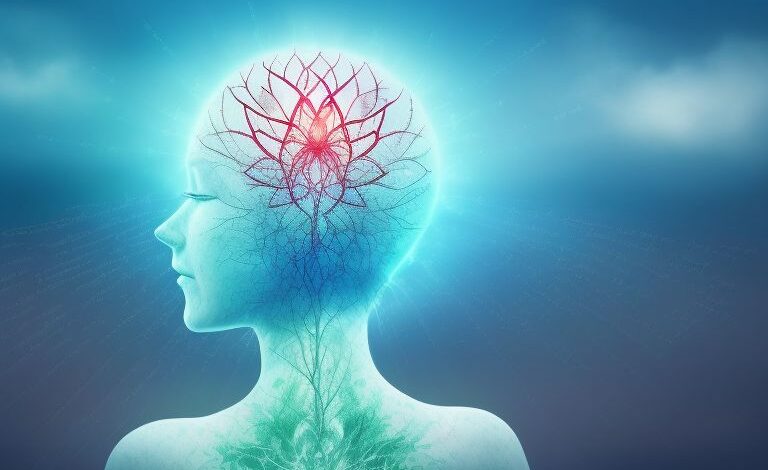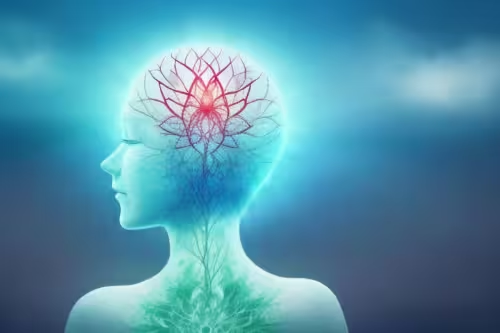Transformational Therapy: Unlocking Personal Growth and Healing

In today’s fast-paced world, many individuals are seeking deeper ways to connect with themselves, heal from past wounds, and make lasting changes in their lives. Transformational therapy is a powerful approach that combines various therapeutic techniques to help individuals address their inner struggles, break through mental and emotional barriers, and experience profound personal growth.
Whether you're looking to overcome anxiety, depression, trauma, or simply seeking to understand yourself on a deeper level, transformational therapy offers a holistic path to healing and self-discovery.

In this article, we’ll dive into what transformational therapy is, how it works, and the benefits it provides. We’ll also explore some of the key techniques used in transformational therapy and how they can help you lead a more fulfilling life.
What Is Transformational Therapy?
Transformational therapy is a holistic therapeutic approach that focuses on facilitating deep, lasting change in an individual’s emotional, psychological, and spiritual well-being. Unlike traditional talk therapy, which may concentrate on managing symptoms, transformational therapy aims to address the root causes of mental and emotional issues. It seeks to create a shift in a person’s core beliefs, behaviors, and emotional responses, leading to transformation in all areas of life.
This form of therapy often combines elements of traditional psychotherapy, mindfulness practices, energy healing, and personal development techniques to help individuals release past trauma, reframe negative thought patterns, and achieve personal breakthroughs. The ultimate goal is to guide people towards a greater sense of self-awareness, purpose, and emotional freedom.
How Does Transformational Therapy Work?
Transformational therapy works by helping individuals access and process the deeper layers of their subconscious mind. Many of our emotional struggles and limiting beliefs are stored in the subconscious, making it difficult to address them through conscious thought alone. Through a variety of therapeutic modalities, transformational therapy brings these hidden issues to the surface, allowing for healing and integration.
Key Elements of Transformational Therapy:
1. Subconscious Healing
The subconscious mind plays a significant role in shaping our beliefs, emotions, and behaviors. Transformational therapy helps individuals access the subconscious to identify and heal unresolved trauma, limiting beliefs, and negative thought patterns. By addressing the root causes of emotional pain, individuals can experience lasting change rather than temporary symptom relief.
2. Emotional Release
Emotional energy, when left unresolved, can manifest as physical tension, anxiety, depression, or even illness. Transformational therapy often incorporates techniques that facilitate emotional release, allowing individuals to let go of pent-up emotions and trauma stored in the body. This emotional cleansing leads to greater mental clarity, emotional balance, and overall well-being.
3. Mind-Body Connection
Transformational therapy recognizes the connection between the mind and body. It uses techniques such as breathwork, meditation, and body-focused therapies to help individuals become more attuned to their bodies, release stress, and restore emotional equilibrium.
4. Spiritual Growth
While not exclusively focused on spirituality, transformational therapy often incorporates elements of spiritual growth and self-discovery. Individuals are encouraged to explore their deeper sense of purpose, connect with their intuition, and cultivate practices that enhance inner peace and wisdom.
Benefits of Transformational Therapy
Transformational therapy offers a wide range of benefits for individuals seeking to improve their mental, emotional, and spiritual health. Whether you're dealing with a specific issue or seeking overall growth, this therapeutic approach can bring about profound positive changes.
1. Healing Trauma
One of the most significant benefits of transformational therapy is its ability to heal deep-rooted trauma. By addressing the subconscious mind and releasing stored emotions, individuals can overcome the lingering effects of past traumas, such as childhood abuse, neglect, or major life events.
2. Breaking Limiting Beliefs
Limiting beliefs are often formed in childhood and can hold individuals back from reaching their full potential. Transformational therapy helps identify and challenge these limiting beliefs, replacing them with empowering thoughts and perspectives that foster growth and success.
3. Reducing Anxiety and Depression
Many people experience chronic anxiety or depression due to unresolved emotional issues. By working with the subconscious mind and releasing emotional blockages, transformational therapy can help reduce symptoms of anxiety and depression, promoting a greater sense of inner peace.
4. Improved Relationships
Transformational therapy helps individuals develop healthier relationships by fostering self-awareness, emotional intelligence, and communication skills. As individuals heal their inner wounds, they are better able to engage in fulfilling and supportive relationships.
5. Increased Self-Awareness
Self-awareness is a key component of personal growth. Through transformational therapy, individuals gain a deeper understanding of their emotions, behaviors, and motivations, leading to more intentional and mindful living.
6. Spiritual Fulfillment
For those seeking spiritual growth, transformational therapy provides a path to connect with their higher self, explore their life’s purpose, and cultivate a sense of meaning and fulfillment.
Key Techniques Used in Transformational Therapy
Transformational therapy uses a variety of techniques to facilitate healing and personal growth. Here are some of the most commonly used methods:
1. Cognitive Behavioral Therapy (CBT)
CBT focuses on identifying and changing negative thought patterns that contribute to emotional distress. In transformational therapy, CBT is often used to help individuals reframe limiting beliefs and develop healthier, more empowering perspectives.
2. Mindfulness and Meditation
Mindfulness practices help individuals become more aware of their thoughts, emotions, and physical sensations in the present moment. Meditation is often used in transformational therapy to promote relaxation, reduce stress, and enhance self-awareness.
3. Hypnotherapy
Hypnotherapy involves inducing a state of deep relaxation and heightened focus, allowing individuals to access their subconscious mind more easily. This technique is particularly effective in helping individuals identify and release emotional blockages, limiting beliefs, and trauma.
4. Breathwork
Breathwork is a powerful tool for releasing stored emotions and trauma from the body. By practicing conscious, controlled breathing, individuals can access deeper emotional states and promote healing on both a physical and emotional level.
5. Energy Healing (Reiki)
Energy healing practices like Reiki are often incorporated into transformational therapy to balance the body’s energy systems. These practices help release emotional blockages and promote a sense of inner peace and harmony.
6. Somatic Therapy
Somatic therapy focuses on the connection between the mind and body. It helps individuals become more aware of their physical sensations and how they relate to emotional experiences. Through body-based exercises, individuals can release physical tension and emotional trauma.
Is Transformational Therapy Right for You?
If you're seeking deeper healing, personal growth, or a sense of purpose, transformational therapy could be the right approach for you. Here are a few signs that you may benefit from this form of therapy:
- You feel stuck in old patterns of behavior or thought.
- You’ve experienced trauma or emotional pain that continues to affect your life.
- You struggle with anxiety, depression, or chronic stress.
- You want to cultivate a greater sense of self-awareness and emotional intelligence.
- You’re seeking spiritual growth or a deeper connection with yourself.
Frequently Asked Questions (FAQ)
1. What makes transformational therapy different from traditional therapy?
Transformational therapy takes a holistic approach to healing by addressing not just the symptoms of emotional or psychological distress, but also the underlying root causes. It focuses on personal growth, emotional release, and spiritual development, which goes beyond the scope of traditional talk therapy.
2. How long does transformational therapy take to see results?
The length of time needed for transformational therapy varies depending on the individual and their specific challenges. Some people experience significant shifts within a few sessions, while others may require a longer period to work through deeper issues.
3. Is transformational therapy suitable for everyone?
While transformational therapy can benefit many individuals, it may not be suitable for those who are looking for a quick fix or are unwilling to engage in the deep emotional work it often requires. It’s best for people who are committed to personal growth and are open to exploring new ways of healing.
4. Can transformational therapy be combined with other forms of therapy?
Yes, transformational therapy can be used alongside other therapeutic approaches, such as traditional psychotherapy, medication, or counseling. It often complements these treatments by addressing emotional and spiritual aspects that may not be covered in conventional therapy.
5. Do I need to be spiritual to benefit from transformational therapy?
No, you don’t need to be spiritual to benefit from transformational therapy. While some techniques may incorporate spiritual elements, the focus is on personal growth, emotional healing, and self-awareness, which can be helpful to individuals regardless of their beliefs.
Transformational therapy offers a powerful path to personal growth, healing, and self-discovery. By addressing the root causes of emotional and psychological distress, this therapeutic approach helps individuals make lasting changes and live more fulfilling lives. If you're ready to transform your life and unlock your full potential, transformational therapy may be the key to achieving the personal breakthroughs you’ve been seeking.


